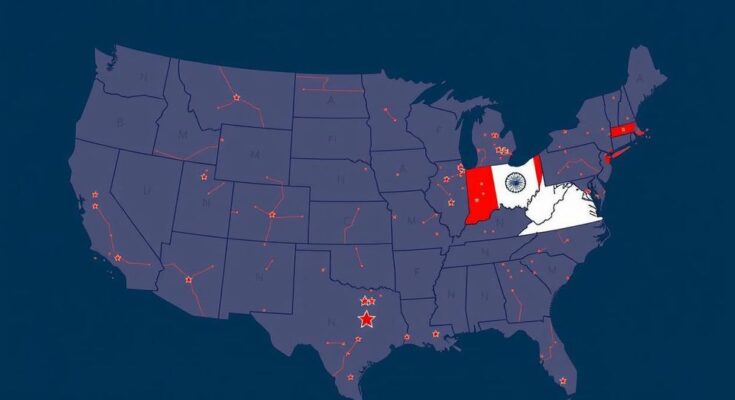Recent reports reveal that alleged Chinese influence campaigns are heightening concerns over interference in U.S. elections. Targeting notable Republican candidates, these campaigns engage in disinformation efforts that raise questions about foreign interference’s potential impact on electoral outcomes. Cybersecurity experts warn about the vulnerabilities of downballot campaigns, emphasizing the need for robust defenses against such tactics. Authorities stress the importance of proactive measures and collaboration with security agencies to mitigate these threats effectively.
Concerns regarding foreign influence in American elections are intensifying following a report from the Microsoft Threat Analysis Center that indicates alleged Chinese campaigns targeting significant political figures and races in the United States. This report, unveiled shortly before the upcoming elections, uncovers attempts by Chinese actors to affect several Republican candidates, particularly those with a stance against Beijing’s policies. The Chinese Embassy has refuted these allegations, asserting non-interference in U.S. electoral processes. Among the notable figures allegedly targeted are Representative Michael McCaul and Senator Marsha Blackburn, both vocal critics of China. The campaign, referred to as Taizi Flood, reportedly engaged in disinformation tactics aimed at undermining these candidates, paralleling a rise in threats as indicated by the Federal Bureau of Investigation (FBI) and the Cybersecurity and Infrastructure Security Agency (CISA). The FBI is currently investigating unauthorized access to telecommunications infrastructure reportedly linked to Chinese actors, though specific breaches involving former President Trump and Senator JD Vance remain unconfirmed. Cybersecurity experts have raised alarms, suggesting that lower-profile races may lack adequate defenses against such insidious attempts. As these threats evolve—with the assistance of advanced technologies such as artificial intelligence—the potential for misinformation campaigns to gain traction increases. Reports indicate that foreign actors, particularly China, may seek to sway election outcomes to favor candidates perceived as more amenable to their foreign policy interests. In response to these challenges, authorities emphasize the need for campaigns to adopt robust cybersecurity measures and maintain effective communication with domestic security agencies to combat disinformation campaigns swiftly. Public officials are urged to address these foreign threats proactively and inform the American public about the risks posed by such influence operations.
In the wake of recent allegations concerning foreign interference in U.S. elections, particularly from Chinese actors, the integrity of the electoral process is under scrutiny. Reports have surfaced indicating targeted disinformation campaigns aimed at influential Republican candidates, raising alarms regarding the implications of such operations for the democratic framework in the United States. The involvement of sophisticated cyber tactics, including hacking and social media manipulation, underlines the need for enhanced cybersecurity measures for election campaigns. The growing awareness among policymakers regarding these threats parallels calls for more aggressive countermeasures against foreign interference.
The allegations of Chinese influence campaigns aimed at U.S. elections underscore a pressing concern for national security and democratic integrity. As reports illuminate the tactics employed by foreign actors to meddle in the electoral landscape, it becomes imperative for candidates and campaigns to fortify their defenses against disinformation and cyber threats. Sound cybersecurity practices, combined with proactive communication with security agencies, are crucial to safeguarding the electoral process. As geopolitical tensions evolve, awareness and responsiveness to such interference are crucial to preserving the democratic ideals of the United States.
Original Source: thehill.com




